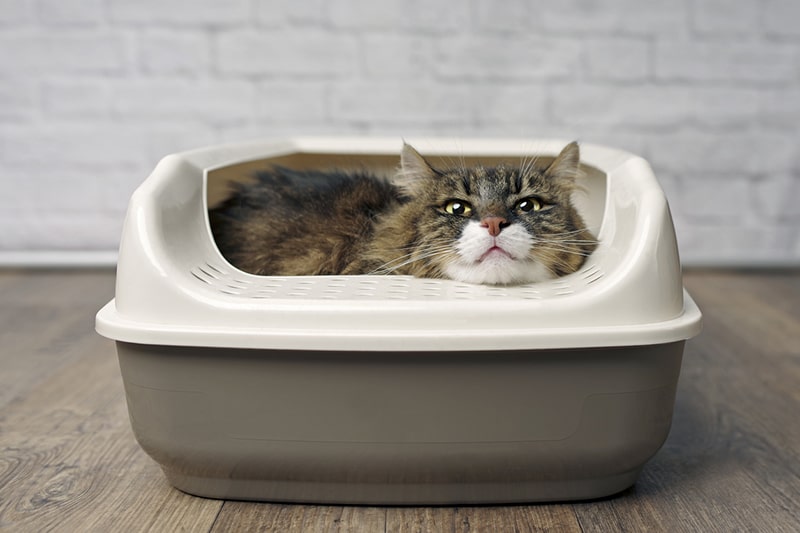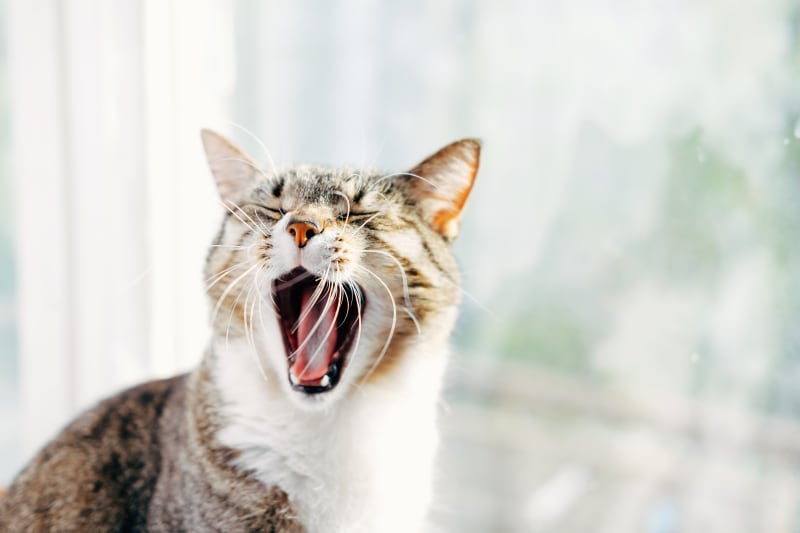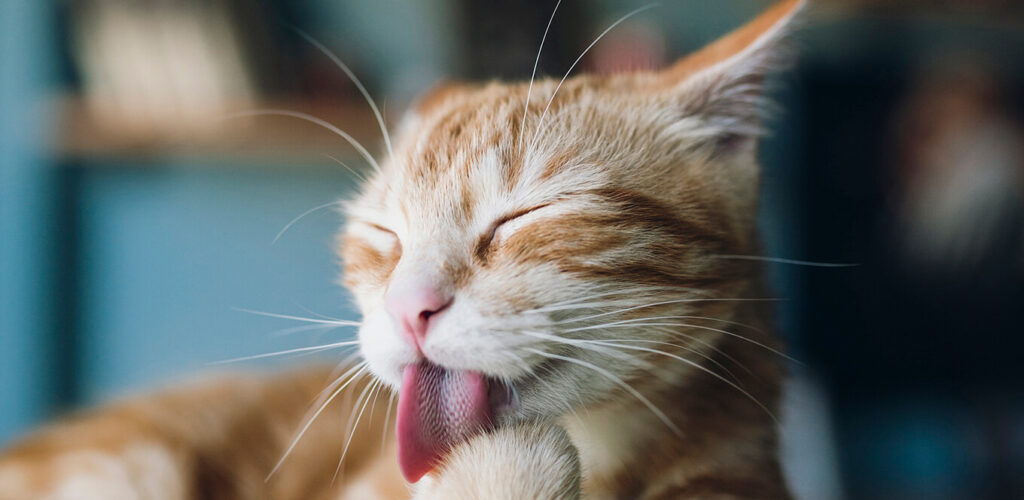Cats can typically hold their poop for up to 24-48 hours, but it can vary depending on their individual health and circumstances. Having concerns about how long cats can hold their poop is natural, as it is important to understand their bowel movements for their overall well-being.
Cats are known for their excellent litter box habits, and they generally have a desire to keep their designated elimination area clean. While they can usually hold their poop for up to 24-48 hours, it is essential to monitor their litter box habits regularly to ensure they are healthy and not suffering from any digestive issues or constipation.
We will explore more about how long cats can hold their poop and what factors can affect their bowel movements. Understanding these aspects will help you better care for your furry friend and address any potential concerns.
Contents
- 1 Factors Affecting A Cat’s Ability To Hold Their Poop
- 2 Signs Of An Impacted Cat
- 3 Potential Health Risks And Complications
- 4 The Importance Of Monitoring A Cat’s Bathroom Habits
- 5 Tips For Promoting Healthy Bowel Movements In Cats
- 6 When To Seek Veterinary Help
- 7 Frequently Asked Questions Of I’m Concerned: How Long Can Cats Hold Their Poop?
- 8 Conclusion
Factors Affecting A Cat’s Ability To Hold Their Poop
Factors Affecting a Cat’s Ability to Hold Their Poop:
Age and Health Status: The ability of cats to hold their poop can vary based on their age and health. Kittens, for example, may have less control and may need more frequent trips to the litter box. Older cats may also experience a decrease in muscle tone, making it harder for them to hold their poop for extended periods.
Diet and Fiber Intake: A cat’s diet plays a significant role in their bowel movements. A high-quality diet with adequate fiber content helps regulate their digestive system, promoting regularity. Lack of fiber may lead to constipation, making it more difficult for cats to hold their poop.
Stress Levels and Anxiety: Cats are sensitive animals and can experience stress and anxiety, which may impact their ability to hold their poop. Changes in their environment, such as moving houses or introduction of a new pet, can cause stress, resulting in irregular bowel movements.
Signs Of An Impacted Cat
Signs of an impacted cat include frequent litter box visits, straining and vocalization during defecation, and small or no stool production. Cats are generally very clean animals and will visit their litter box on a regular basis. However, if you notice your cat making frequent visits to the litter box without producing any stool, it could be a sign of an issue. Straining and vocalization during defecation is another telltale sign of an impacted cat. If your cat appears to be struggling or crying out in pain while trying to pass stool, it is important to seek veterinary attention.
Potential Health Risks And Complications
Constipation is a common condition among cats that can lead to potential health risks and complications. Cats with constipation may also develop a condition called megacolon, where there is an abnormal dilation of the large intestine. This can cause a buildup of feces and lead to further complications. Another health risk associated with constipation is the development of urinary tract infections. When stool builds up in the colon, it can put pressure on the bladder and urethra, leading to urinary problems. Additionally, constipated cats are at a higher risk of developing internal blockages. These blockages can occur when large amounts of dry, hard stool accumulate in the colon and cannot be passed. It is important to monitor your cat’s bowel movements and seek veterinary attention if you notice any signs of constipation or related health issues to prevent further complications.
The Importance Of Monitoring A Cat’s Bathroom Habits
The importance of monitoring a cat’s bathroom habits cannot be stressed enough. Regular litter box scrutiny is vital for maintaining your cat’s health and well-being. By recognizing patterns and changes in their bathroom behavior, you can identify potential issues early on and take necessary steps to address them.
Cats are known for their fastidious nature, and any deviation from their regular routine may indicate a problem. Pay attention to the frequency and consistency of their poop. Changes in frequency, such as prolonged periods between bowel movements or frequent visits to the litter box, could signal an underlying health issue.
Keep an eye out for changes in poop consistency as well. Healthy cat poop should be firm and well-formed. If you notice loose stools, diarrhea, or constipation, it may indicate an underlying gastrointestinal problem.
Other signs to watch for include straining or vocalizing during elimination, blood in their poop, or a sudden aversion to using the litter box. These could be red flags that warrant a visit to the veterinarian for further evaluation and treatment.
Remember, early detection is key in ensuring your cat’s well-being. By maintaining a close watch on their bathroom habits and seeking veterinary attention when needed, you can help keep your feline friend happy and healthy.
Tips For Promoting Healthy Bowel Movements In Cats
I’m Concerned: How Long Can Cats Hold Their Poop?
Tips for Promoting Healthy Bowel Movements in Cats
| Providing a Balanced Diet | Encouraging Hydration | Promoting Regular Exercise |
|---|---|---|
| A balanced diet plays a crucial role in maintaining a healthy digestive system for cats. It is important to feed them a quality cat food that contains essential nutrients and fibers. Introducing fiber-rich ingredients like pumpkin, sweet potatoes, or green beans can also aid in regulating their bowel movements. | Hydration is key to preventing constipation in cats. Always ensure that your cat has access to fresh water throughout the day. Consider adding a water fountain or providing wet food, which has higher moisture content, to encourage them to stay hydrated. | Regular exercise not only helps your cat maintain a healthy weight but also promotes regular bowel movements. Engage your cat in playtime activities and provide them with toys that encourage physical activity. This can help stimulate their digestive system. |
When To Seek Veterinary Help
Cats are known for their cleanliness and ability to navigate litter boxes with ease. However, if you notice that your furry friend is having persistent constipation symptoms, it may be time to seek veterinary help. Persistent constipation can be a sign of an underlying issue, such as a blockage or a medical condition. It’s important to pay attention to their litter box habits and look for signs of straining or discomfort. Additionally, if you notice the presence of blood or your cat is experiencing pain while trying to defecate, it’s crucial to seek immediate veterinary assistance.
Another red flag to look out for is any changes in your cat’s eating or drinking habits. Any sudden decrease in appetite or decrease in water intake can worsen constipation. This can lead to dehydration and potentially exacerbate the issue. If you notice any significant changes in their behavior or eating habits, consult a veterinarian to rule out any medical conditions or to get proper treatment for their constipation.

Credit: www.aspcapetinsurance.com
Frequently Asked Questions Of I’m Concerned: How Long Can Cats Hold Their Poop?
How Long Can A Cat Safely Go Without Pooping?
Cats can safely go without pooping for up to 48 hours, but if the absence lasts longer, it may signify a problem.
Can A Cat Go 5 Days Without Pooping?
Yes, a cat can go without pooping for 5 days. However, if it exceeds this duration, it may indicate a health issue. If your cat shows signs of discomfort or lack of appetite, it’s best to consult a veterinarian for proper evaluation and treatment.
What If My Cat Hasn’t Pooped For 3 Days?
If your cat hasn’t had a bowel movement for 3 days, it could be a sign of constipation or a medical issue. Contact a veterinarian for advice and possible treatment options.
Should I Be Concerned If My Cat Hasn’t Pooped In 24 Hours?
If your cat hasn’t pooped in 24 hours, it could indicate a potential issue. Monitor their behavior for signs of discomfort, and contact a veterinarian for advice.
Conclusion
To sum it up, cats can hold their poop for varying lengths of time depending on various factors such as diet, age, and health conditions. It is important to be aware of any significant changes in your cat’s litter box habits as this may indicate an underlying issue.
Proper nutrition, regular vet check-ups, and the provision of a suitable litter box environment can contribute to your cat’s overall digestive health. Remember, if you notice any persistent changes or concerns, it’s always best to consult with your veterinarian for personalized guidance.

Katie Lindsey is a passionate cat lover and founder of Cats Solution, a comprehensive resource for all things feline. With a lifelong love for cats and extensive knowledge in their care and behavior, she provides expert advice and solutions to cat owners. Through her website, Katie fosters a supportive community where cat enthusiasts can find guidance and heartwarming stories. A dedicated advocate for animal welfare, Katie also promotes responsible pet ownership and adoption. Join her on this purr-fect journey celebrating the joy of feline companionship.



